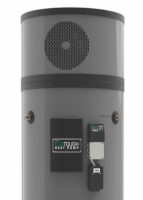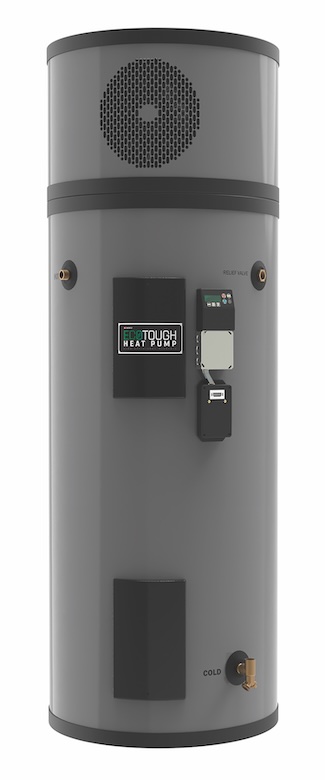The leading local HVAC and plumbing provider offers free admission to the fair for active and former military personnel and emergency workers and their families on Aug. 7 Peterman Brothers, a leading HVAC and plumbing company serving the Greater Indianapolis area, is partnering with the Indiana State Fair this month to honor active and former Read more
HVAC

The leading local HVAC and plumbing provider offers free admission to the fair for active and former military personnel and emergency workers and their families on Aug. 7
Peterman Brothers, a leading HVAC and plumbing company serving the Greater Indianapolis area, is partnering with the Indiana State Fair this month to honor active and former military service members and emergency workers.
Aug. 7 is Military and First Responders’ Day at the fair. Officially sponsored by Peterman Brothers, first responders and current and former military personnel and their families will receive free admission with valid ID.

“We’re proud to once again partner with organizers of the Indiana State Fair to give something back to the true heroes in our community,” said Chad Peterman, president of Peterman Brothers. “It’s important for us to recognize the sacrifices made on behalf of our nation. We’re incredibly grateful for everything our military personnel and first responders do. We also appreciate the fair offering Peterman Brothers such a great opportunity to say thank you every year.”
In addition to Military and First Responders’ Day, Peterman Brothers will have a booth throughout the fair where attendees can register to win prizes or find out more about the company.
The Indiana State Fair runs Aug. 2-18. For more information, visit www.indianastatefair.com.
Peterman Brothers is available to help with any heating, cooling, plumbing or electrical needs. For more information, call (317) 207-9858 or visit www.petermanhvac.com.

Zoning and control solutions from Airzone turn HVAC units from any leading manufacturer into a smart device Airzone Control, a leader in HVAC zoning and smart control solutions, is partnering with SmartThings, Samsung’s global connected living platform, to integrate Airzone HVAC control and zoning solutions into the SmartThings ecosystem. This collaboration will make it possible Read more
Zoning and control solutions from Airzone turn HVAC units from any leading manufacturer into a smart device

Airzone Control, a leader in HVAC zoning and smart control solutions, is partnering with SmartThings, Samsung’s global connected living platform, to integrate Airzone HVAC control and zoning solutions into the SmartThings ecosystem. This collaboration will make it possible to connect HVAC units from any leading manufacturer to SmartThings, bringing new levels of simplicity, control, and efficiency to smart homes.
HVAC is one of the most energy-hungry systems in the home. For consumers looking to leverage the SmartThings platform to control their energy costs and reduce their carbon footprint, monitoring HVAC usage in the home is essential. Airzone offers a line of after-market control devices that connect directly to the HVAC unit, instantly turning it into a smart device.
Airzone Now Works with SmartThings
Airzone’s Aidoo HVAC controller works with every leading Inverter/VRF brand, including Samsung, Mitsubishi, Daikin, and more. As part of the partnership between SmartThings and Airzone, three Aidoo HVAC control products are now Works with SmartThings certified:
- Aidoo Pro – a flagship control device that allows integration between the latest Inverter, VRF, mini-split, and multi-split HVAC units and third-party IoT devices, including smart thermostats and home automation systems.
- Aidoo Wi-Fi – a control device that enables voice- or app-based HVAC control of Inverter/VRF units. If consumers want to use the original manufacturer’s thermostat but still connect to SmartThings, Aidoo Wi-Fi is all they need.
- Aidoo Pro Fancoil – an Aidoo control device enabling app-based control of legacy fancoil units (available only in the EU).
Maximizing Efficiency with Zoned System Control
For even greater efficiency and room-by-room temperature control, Airzone offers zoning control solutions. The Works with SmartThings-certified Webserver HUB and Webserver Cloud enables total control of sensors, thermostats, and up to 32 separate zoned HVAC units.
With the Aidoo control and Webserver zoning solutions, users can monitor and control their home’s HVAC systems from anywhere in the world using the SmartThings app. These devices also enable two-way communication between HVAC units and SmartThings automation experiences.
“Bringing HVAC into the SmartThings ecosystem will have a profound impact on smart home efficiency and experience,” said Antonio Mediato, CEO of Airzone. “Inverter/VRF HVAC units controlled by Airzone devices are up to 40% more efficient, and zoned systems can achieve 60% greater efficiency. This partnership with Samsung is going to have a measurable effect on consumers’ lives.”
“This collaboration with Airzone underscores our commitment to providing a holistic smart home experience,” said Mark Benson, Head of SmartThings U.S. “By integrating Airzone’s advanced HVAC control devices into the SmartThings ecosystem, we are setting new standards for energy efficiency and intelligent automation in homes across the globe.”
Airzone’s Works with SmartThings devices are available now. To learn more, visit partners.smartthings.com/partners/airzone. Learn more about the full line of Airzone HVAC control solutions at airzonecontrol.com.
Falls Church, Va. — Plumbing-Heating-Cooling Contractors National Association (PHCC) unveils Jeff Butler and Mary Kelly as the keynote speakers for CONNECT 2024 in Birmingham, Alabama, October 7-10, at the Birmingham Jefferson Convention Complex. Jeff Butler is a workplace strategist, who has offered expertise to help companies like Amazon, Google and John Deere foster a harmonious Read more
Falls Church, Va. — Plumbing-Heating-Cooling Contractors National Association (PHCC) unveils Jeff Butler and Mary Kelly as the keynote speakers for CONNECT 2024 in Birmingham, Alabama, October 7-10, at the Birmingham Jefferson Convention Complex.

Jeff Butler is a workplace strategist, who has offered expertise to help companies like Amazon, Google and John Deere foster a harmonious and high-performing workplace. Butler will present a keynote address, “Building an Effective Multi-Generational Workplace.” He will also lead a breakout session on the topic of “Winning the Talent War.”
 Mary Kelly is a Council of Peer Award of Excellence speaker, best-selling author and Navy commander. At CONNECT, Kelly will share various stories and experiences of interest to p-h-c contractors during her keynote address, “Why Leaders Fail and the 7 Prescriptions for Success.” Kelly will also lead a breakout session, “Master Your World,” where she will emphasize effective tactics, practical strategies and innovative solutions that are tailored to dilemmas faced by today’s leaders.
Mary Kelly is a Council of Peer Award of Excellence speaker, best-selling author and Navy commander. At CONNECT, Kelly will share various stories and experiences of interest to p-h-c contractors during her keynote address, “Why Leaders Fail and the 7 Prescriptions for Success.” Kelly will also lead a breakout session, “Master Your World,” where she will emphasize effective tactics, practical strategies and innovative solutions that are tailored to dilemmas faced by today’s leaders.
“I know that many attendees, including myself, are anticipating the remarks that Jeff and Mary will share,” says Joe Cornetta, PHCC national president and co-owner of Cornetta Brothers, Inc., Elmont, New York. “We are excited to have these two leaders join us and help offer invaluable insights to the industry.”
For more details, including the schedule-at-a-glance, visit phccweb.org/CONNECT. This site offers information on education sessions, speakers, exhibitors, registration and hotel reservations, as well as the many attractions of Birmingham, known as “The Country’s Best Kept Secret.”

Contest recognizes outstanding customer service; winner receives $500 gift card! Malco Tools, one of the nation’s leading solution developers and manufacturers of a variety of high-quality tools for the HVAC and building construction trades, today announced that nominations are now open for its second annual Counterperson of the Year Contest. Malco is looking to recognize and celebrate Read more
Contest recognizes outstanding customer service; winner receives $500 gift card!
Malco Tools, one of the nation’s leading solution developers and manufacturers of a variety of high-quality tools for the HVAC and building construction trades, today announced that nominations are now open for its second annual Counterperson of the Year Contest.

Malco is looking to recognize and celebrate outstanding counter staff at its U.S. wholesale distribution locations who demonstrate the same values that make Malco great: dedication to superior customer service and going above & beyond to ensure contractors have the Malco tools they need to get the job done.
There are great prizes lined up not just for the winner, but for nominators as well:
- One nationwide winner will receive a $500 gift card.
- All qualifying nominees will receive a Malco golf shirt, hat and product catalog.
- All qualifying nominators will be entered into a drawing for a $250 gift card.
It is easy to nominate outstanding counter staff, with 2 options to enter:
- Enter online at www.malcotools.com/counterperson-of-the-year
- Grab a printed form at your local distributor location and mail it in (PO Box 400, Annandale, MN, 55302)
All entries must be received by Monday, September 30, and the winner will be announced in November. Please note, this contest is only open to nominees in the United States.For more information about Malco Tools and to enter the contest, visit www.malcotools.com.

Designed to use one-third the electricity of traditional residential electric water heaters, new product ensures dependable, efficient hot-water delivery. Noritz America, a leader in tankless water heaters and high-efficiency combination boilers, recently previewed its new, ENERGY STAR-certified Hybrid Electric Heat Pump Water Heater for residential domestic hot water applications. Making its debut in Chicago at Read more
Designed to use one-third the electricity of traditional residential electric water heaters, new product ensures dependable, efficient hot-water delivery.
Noritz America, a leader in tankless water heaters and high-efficiency combination boilers, recently previewed its new, ENERGY STAR-certified Hybrid Electric Heat Pump Water Heater for residential domestic hot water applications.
Making its debut in Chicago at the 2024 AHR Expo in January, this newest addition to the Noritz offering consumes up to one-third of the electricity required by a standard residential electric water heater with a resistive element, yet maintains the same level of hot-water delivery. The “hybrid” designation denotes the inclusion of dual 4.5-kilowatt electric elements positioned at the top and bottom of the tank to provide backup water heating or accelerate recovery times when necessary.
 Set for an official launch on July 1, the new Hybrid Electric Heat Pump unit efficiently transfers heat from air to water, resulting in substantial energy savings for consumers seeking to reduce their utility bills. The Hybrid Electric Heat Pump is eligible for government rebates of up to $3,000, the kind of incentive that has made heat pump installations so attractive for both contractors and homeowners.
Set for an official launch on July 1, the new Hybrid Electric Heat Pump unit efficiently transfers heat from air to water, resulting in substantial energy savings for consumers seeking to reduce their utility bills. The Hybrid Electric Heat Pump is eligible for government rebates of up to $3,000, the kind of incentive that has made heat pump installations so attractive for both contractors and homeowners.
Handling hot water temperatures ranging from 50°F to 160°F, the product will be available in four sizes, with the model numbers here indicating the gallon storage volumes: (NHP50, NHP65, NHP80, and NHP120). The 120-gallon model, still a rarity in today’s market, is available by special order. UEF (Uniform Energy Factor) ratings range up to 3.48, highlighting its energy efficiency when compared to similar products in the market.
“At Noritz, our dedication to providing our customers with diverse water heating solutions drives our innovation,” explains Jason Fleming, Executive Vice President and General Manager of Noritz America. “The introduction of the Hybrid Electric Heat Pump not only addresses recent market and regulatory shifts nationwide, but also offers a product designed to save energy, lower maintenance and operating expenses for customers, and streamline installations and servicing for contractors.”
Key Features
- Cement lining: The specially formulated cement lining of the unit’s storage tank is designed to prevent the corrosive effects of hot water. By negating the need for a sacrificial anode rod, the lining all but eliminates maintenance requirements and the necessity for regular checks. (Neglecting to replace the anode rod can lead to premature tank failure in a conventional electric water heater.)
- Five operating modes: The Hybrid Electric Heat Pump offers users five different ways to operate the unit, depending upon user demand and current conditions: hybrid (standard), electric only, heat pump only, super (for high-demand situations), and vacation.
- First Hour Rating: The Hybrid Electric Heat Pump Water Heater’s first hour ratings are 58 gallons (NHP50), 70 gallons (NHP65), 86 gallons (NHP80), and 105 (NHP120).
- High-pressure rating: The unit has a pressure rating of 150 pounds per square inch (psi) WP and 300 psi TP. A temperature and pressure relief valve comes with the unit, pre-installed.
- Warranties: The cement-lined tank and all parts are covered by ten years of protection, plus a one-year warranty on reasonable labor.
- Approvals include AHRI, UL1995, CSA 22.2 No. 236, Low Lead.
For more information on the new Hybrid Electric Heat Pump Water Heater, visit: https://noritz.com/heatpump/
